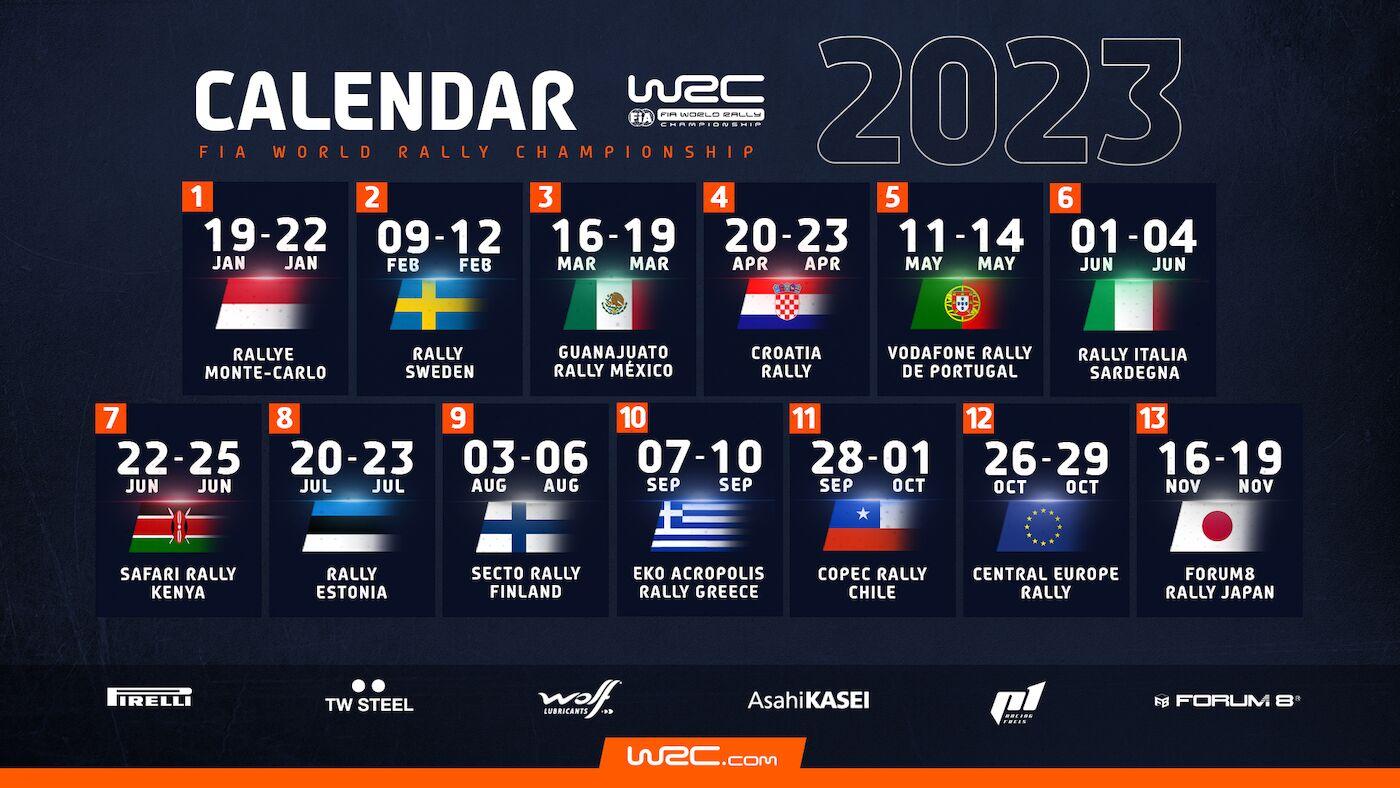In an era where motorsport calendars are increasingly packed with events,the World Rally Championship (WRC) is taking a more measured approach. As discussions surrounding the expansion of racing schedules intensify, WRC officials have reiterated their commitment to quality over quantity. The mantra of “more events is not better” resonates deeply within the organization,prompting a closer examination of how the championship intends to balance the demands of a performance-driven audience with the realities of maintaining a sustainable,thrilling series.This article delves into the WRC’s strategic stance on its calendar, exploring the implications for teams, sponsors, and fans alike in a landscape often dominated by the lure of an ever-expanding race calendar.
Evaluating the Impact of WRC’s Current Calendar Structure on Competitive Integrity
As the world Rally Championship (WRC) considers its future calendar, the emphasis on quality over quantity has never been more pertinent. Expanding the number of events purely for the sake of increasing the schedule could compromise the competitive integrity that has characterized the championship. The delicate balance between maintaining excitement and ensuring fairness is pivotal. A full calendar may dilute the prestige associated with each rally, leading to logistical challenges that impact teams and fans alike. Key concerns include:
- Resource Allocation: More events require significant resources, stretching teams thin.
- Fatigue and Performance: Increased rounds can lead to driver and vehicle fatigue, influencing performance outcomes.
- Event Quality: With too manny races, the uniqueness of each rally may suffer, detracting from fan engagement.
Moreover, as the WRC seeks to ensure that every rally is a true test of skill, the existing calendar structure allows for meticulous preparation and strategic planning. Current events enable competitors to optimize their setup, ensuring that all teams have a fair chance of success throughout the season. An increase in events could inadvertently favor those with larger budgets, undermining the spirit of competition that defines the WRC. Considerations include:
| Factor | Negative Impact of Expanded Calendar |
|---|---|
| Team Preparation | Less time for testing and tuning vehicles |
| Fan Experience | Poorer overall event quality and spectator engagement |
| Competitive Equity | Increased advantage for well-funded teams |
Balancing Tradition and Expansion in World Rally Championship Events
The World Rally Championship (WRC) has long been a bastion of tradition, steeped in rich history and legendary events that have shaped the sport over decades. Organizers face the critical challenge of expanding the global footprint of the championship while preserving its heritage. The allure of iconic rallies such as Monte Carlo and Safari is not merely in their name but in the unique challenges and character they present. WRC promoters assert that this balance is essential, arguing that genuine rally experiences cannot be sacrificed for fleeting gains in event numbers or geographical reach. Instead, they prioritize adding value to existing events through enhanced experiences and fan engagement, ensuring the competitive integrity remains intact.
Moreover, the financial implications of expansion warrant careful consideration. A recent analysis highlighted that merely increasing the number of events does not guarantee higher revenue or fan engagement. Rather, key factors influencing profitability include:
- Event quality over quantity
- Strategic partnerships with local sponsors
- enhanced broadcast capabilities
to illustrate these potential benefits, the table below outlines the impact of a well-executed marketing strategy versus an increase in event numbers:
| Strategy | Event Numbers | Fan Engagement | Revenue Growth |
|---|---|---|---|
| Quality Events | 10 | High | 15% Increase |
| more Events | 15 | Medium | 5% Increase |
This evidence reinforces the notion that while growth is undoubtedly desirable, the preservation of tradition in the WRC is paramount to ensuring its longevity and respect within motorsport circles. It is this delicate equilibrium that WRC stakeholders must navigate in order to thrive in an ever-evolving sporting landscape.
Strategic Recommendations for Future Growth in WRC Without Compromising Quality
As the World Rally Championship (WRC) navigates its path to future growth, stakeholders must prioritize quality over mere quantity in event offerings. Expanding the calendar can dilute the competitive essence and the unique experience for both teams and fans. Instead, focus should be directed towards enhancing existing events through improved infrastructure and localized engagement. Strategies could include:
- Investing in Technology: Incorporate more advanced data analytics and broadcasting equipment to elevate viewer engagement.
- Cultivating Local Partnerships: Work closely with local businesses and communities to create immersive rally experiences that boost both attendance and morale.
- Enhancing Spectator Experience: Introduce innovative features such as interactive zones where fans can engage with the event on a deeper level.
Furthermore, managing financial sustainability is crucial. By revisiting funding models and seeking option revenue streams, the WRC can ensure each event remains economically viable without sacrificing quality. In lieu of increasing race count, the focus should shift to:
| Select Financial strategies | Impact on Events |
|---|---|
| Merchandising Opportunities | Boosts revenue while promoting brand loyalty. |
| Exclusive sponsorships | Creates tailored experiences that appeal to premium audiences. |
| Digital Content Monetization | Expands reach and generates additional income streams. |
By aligning these strategic initiatives,the WRC is poised to grow sustainably,ensuring each event remains a high-quality spectacle that captivates audiences worldwide.
Closing Remarks
the decision to refrain from expanding the World Rally Championship calendar underscores a thoughtful approach to the sport’s sustainability and integrity. As stakeholders weigh the merits of quantity against quality, it becomes clear that the focus lies not onyl in the number of events but also in enhancing the overall experience for fans, teams, and drivers alike.With the WRC’s commitment to maintaining high standards and ensuring thrilling competition, the future of rallying appears to be in capable hands. As the championship continues to evolve, the emphasis on a balanced and strategic schedule may very well pave the way for a stronger, more vibrant motorsport community.










